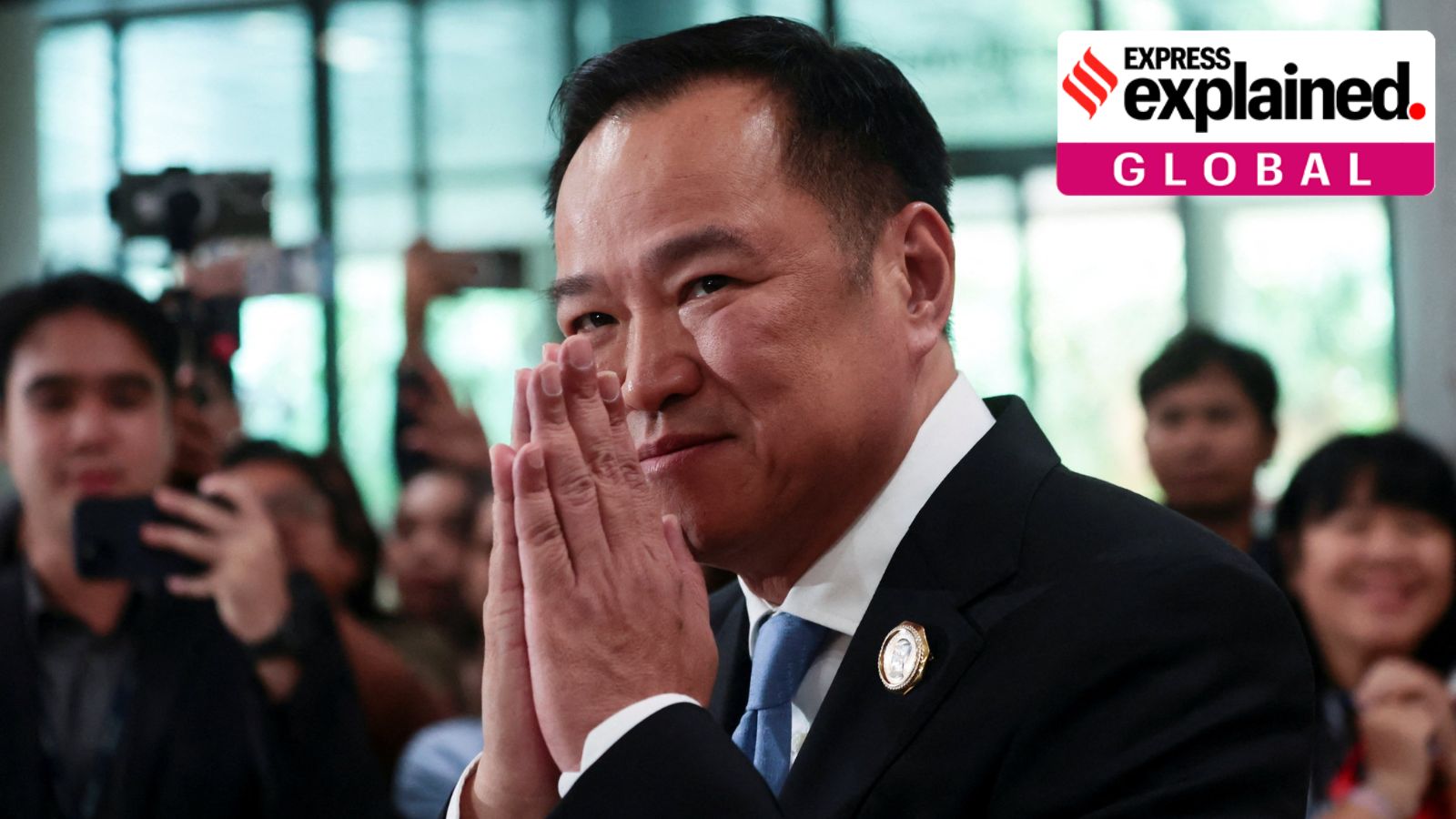Cannabis crusader to Thailand PM: Four things to know about Anutin Charnvirakul
Anutin has thus became the third Prime Minister in two years, a week after Paetongtarn Shinawatra was dismissed from the post by the Constitutional Court.
 Anutin served as interior minister until the scandal involving Paetongtarn Shinawatra came to light in June. (Reuters)
Anutin served as interior minister until the scandal involving Paetongtarn Shinawatra came to light in June. (Reuters)Thailand’s parliament on Friday (September 5) overwhelmingly voted to elect Anutin Charnvirakul of the Bhumjaithai Party (BJT) as the country’s next Prime Minister. He is Thailand’s third Prime Minister in two years, a week after Paetongtarn Shinawatra was dismissed from the post by the Constitutional Court.
“I will work my hardest, every day, no holidays, because there is not a lot of time,” Anutin told reporters Friday. “We have to ease problems quickly.”
Anutin enjoys the backing of the progressive People’s Party, currently in the opposition, conditional on his dissolving the parliament within four months and changing the country’s Constitution, while possibly holding a referendum.
Here is what to know about Anutin.
Engineer turned political veteran
The 58-year-old is the son of politician and construction tycoon Chavarat Charnvirakul. Anutin studied engineering at New York’s Hofstra University, graduating in 1989, after which he joined the family business, Sino-Thai Engineering and Construction PCL. The company has been responsible for several major projects, including Bangkok’s Suvarnabhumi Airport.
Anutin’s first political foray was in 1996 when he served as advisor to Prachuap Chaiyasan, the Foreign Affairs Minister under the New Aspiration government. He later served as the Deputy Minister of Commerce in 2004 and Deputy Minister of Public Health between 2004 and 2005.
He was elected the BJT’s leader in 2012 and ran as the party’s candidate for Prime Minister in 2019. He would go on to become the Health Minister in Prayut Chan-ocha’s second government, overseeing the country through the Covid-19 pandemic, for which he earned some criticism.
The party, while a relatively minor force in the country’s politics, has played king-maker in recent governments, lending support to the Thaksin Shinawatra-affiliated Pheu Thai Party. Anutin served as Interior Minister until the scandal involving Paetongtarn Shinawatra came to light this June.
Championing legal cannabis
In the run-up to the 2019 election, he championed the cause of legal cannabis. This was significant considering the BJT’s stronghold in the relatively poor northeastern region of the country, where it promised farmers that cannabis would be a new cash crop. As Health Minister, he championed the policy’s medical, health and economic benefits, while aiming to reduce the country’s prison population. He also proposed distributing 1 million free cannabis plants to households.
However, the cannabis rollout was criticised for being arbitrary and without safeguards, leading to a mushrooming number of unregulated dispensaries. Anutin has claimed that his focus was always on medical cannabis and that his coalition partners had stalled his party’s detailed legislation.
In June, the country moved to restrict cannabis use, banning shops from selling the substance to customers without a prescription, and reclassifying cannabis buds as a controlled herb. Sellers violating the order face up to one year in jail and a fine of 20,000 baht ($614). This month, the country’s Department of Traditional and Alternative Medicine authorised the sale of a limited quantity of cannabis for personal use to patients bearing prescriptions for insomnia, chronic pain, migraines, Parkinson’s disease or loss of appetite.
A complicated history with the Shinawatras
Anutin began his political career in Thaksin Shinawatra’s Thai Rak Thai Party, until a military coup forced the latter out of office in 2006. This has been a characteristic of the Shinawatra family, having survived two military coups and three court rulings that unseated three governments and five Prime Ministers over the last two decades.
The subsequent dissolution of the Thai Rak Thai party in 2007 by a court order was accompanied by a five-year ban on Anutin, who returned to politics as BJT leader in 2012. Since then, Anutin, a conservative, has leveraged his own influence among the conservative elite, supporting the military government in power between 2014 and 2019.
Although the BJT won only 70 of the 500 available seats in the 2023 election, it helped to block the election-winner Move Forward party and joined forces with the Pheu Thai, the third iteration of Thai Rak Thai, to form a coalition.
The current result highlights the diminished role of Thaksin Shinawatra, ever since he concluded his 15 years of self-imposed exile in 2023. His return to Thailand was then facilitated through a controversial deal with his conservative rivals, and served to alienate his dwindling voter base, The Guardian reported. He exited the country the night before the parliamentary vote, prompting speculation about his renewed exile. He faces a court hearing on Tuesday (September 9) to determine whether he has adequately served his sentence for previous convictions.
Passion for aviation and gastronomy
During the five-year ban on his political participation (2007-12), Anutin returned to his business and honed his flying skills on his private aircraft, using this skill to facilitate emergency organ donations. He has also expressed a keen interest in good food and fine dining.
“Dining is always a great pleasure of my life,” he once said. “I love to search for delicious food and really appreciate the fact that I can take ultimate joy in any kind of cuisine — whether it be street food or luxurious international fare.”
He also enjoys collecting Buddhist amulets.
- 01
- 02
- 03
- 04
- 05






































